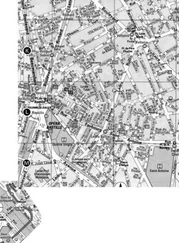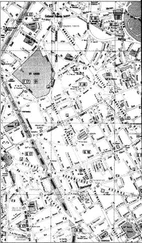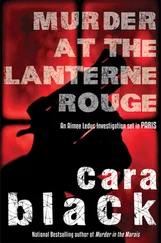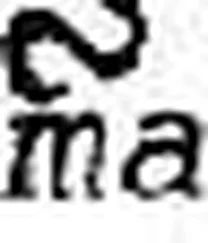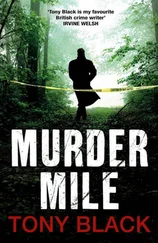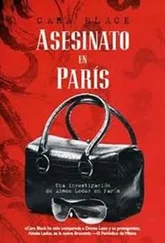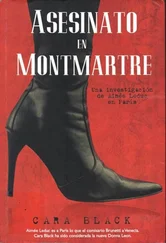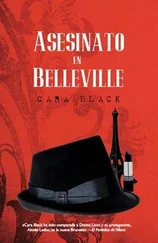She searched for René’s Citroën against the backdrop of lighted Pont Louis Philippe, trying to ignore the pain in her ribs. The bookstore partway down the quai was open late. She became aware of being watched. Again. The feeling of eyes, somewhere. She pulled her scarf around her and retreated into a dark doorway.
Waiting.
Show yourself, she wanted to shout. And then René’s Citroën purred as he pulled up alongside the quai. He parked on the curb and opened the door, putting out one foot shod in a hunter green Wellington boot.
“Well, are you waiting for the moon to rise or . . .” He stopped, handing her his handkerchief. “Your head’s bleeding.”
Her hand rose to touch it and came back red. “A scratch. Did you and Saj find any payroll connections between Alstrom and Halkyut?”
“Looks like they were using Tiscali,” he said. “A shell corporation.”
“I don’t understand.”
“Tiscali’s an offshore corporation registered in Guernsey. Like many others, it’s a company in name only, a front,” he said. “Alstrom remits payments to this Tiscali. And—this is the interesting part—every month Tiscali makes a payment to Halkyut. I faxed this information to the journalist, too.”
This was like unraveling knotted string. Now she had them: the real pollution reports, the copy of the notes under Stella’s arm, the record of secret payments to Halkyut. But she didn’t have Stella.
She motioned to the stone steps leading down to the bank. Took a breath and followed him, alert for any sound. At the top of the stairs, she heard footsteps and froze.
Another Halkyut thug? Or Hélène, carrying Stella?
Just then the figure of a dark-haired woman emerged, casting long shadows onto the cobblestones as she walked up the quai beneath the street lamps.
Down on the bank, Jules’s sewer sluice lay in darkness, boarded up again. She wondered if the flics had rousted him for his own safety. On the flooded bank, the water level now was up to her knees. Her leather boots would take forever to dry. If they did. How could Hélène bring a baby to this place?
Sirens wailed. An ambulance’s red lights flashed as it went speeding over Pont Marie. Her Tintin watch read 9:34 . . . not a bad response time. Jean Caplan was tough; if his luck held, he’d live.
René played his flashlight beam over the partially cemented-up arch. “You can’t mean this? ”
“The second one, there,” she said, pointing to a stone arch farther down.
René shone the beam on it. Planks of wood were nailed crisscross over the opening. No access. The flics must have closed this one down, too.
Gone. She put her head in her hands. She’d felt so sure Nelie and Stella would be here. She wanted to kick herself. No Jules, no Hélène.
“Another wild-goose chase, Aimée,” René said.
“They’re here somewhere.”
René just shook his head. Khaki-colored water flooded the deserted embankment.
They climbed back up the wet stone steps to the bridge. Directly across from them, light showed under the red awning of Libraire Adélaide, a bookstore, next to the dark window of a coiffeur .
“Go ahead—say it, René,” Aimée told him. “I was all wrong. I should have turned Stella over to the authorities right away.”
A questioning look appeared on his face.
“I should have ignored my gut instinct, right?” she said. “What’s the matter, you think I can’t feel any worse than I do? I agree, I have to call the child protection services. My hope is that Hélène may already have taken her to a homeless shelter.”
He shook his head. “I think we’re being invited to the bookstore.”
“I’m not in the mood, René.”
“That gentleman seems to know you. I think he wants to talk with you,” he said.
She spun around. Jules, wearing a navy blue pea coat and a captain’s hat, beckoned them from the bookstore’s doorway. A sign in the window read JOURNEY TO THE PYRAMIDS, SLIDE SHOW AND TALK THIS EVENING. They ran across the street.
“Have you seen Hélène?” Aimée asked breathlessly.
Jules looked around and then nodded. “Quick. Follow me.”
He appeared to be steady on his feet despite the wine on his breath. Inside the dark bookstore, he walked behind the counter to the rear, gesturing for them to follow. “I know the owner. Shhhh.”
Beyond a bookcase in the next room, bodies were packed together on chairs, viewing slides of golden sand and the Pyramids basking in the sun, accompanied by a droning voice . . . “In this slide we see the smallest of the pyramids at Giza built by . . .”
“Here.” Jules opened a door behind the cashier’s counter.
Aimée hesitated.
“Hurry, she’s waiting.” Then he put his finger to his lips.
Aimée trailed René down a narrow wooden staircase, lit by a single hanging bulb. Shelves of books and cardboard cartons filled the stone-walled cavern. A funeral wreath of dried flowers hung on one wall. Suspended from it was the blue, white, and red ribbon that indicated the deceased had been a war veteran. “An old Résistance hideout,” Jules said. “A cache for arms.”
“Funny how these days every place was a Résistance hideout,” René said under his breath.
Jules took a bottle from his pocket, uncorked it, and took a swig. He passed the bottle to Aimée. “ Courage , Mademoiselle.”
“Merci.” She needed it. She wiped the rim with her sleeve and took a gulp to take the taste of blood from her mouth, then handed it to René.
“Use this,” Jules said, handing her the ribbon. She replaced René’s blood-soaked handkerchief with the ribbon, wrapping it tightly to stop her bleeding, wincing.
Jules pushed a carton aside with his rubber boot. He bent, stuck his finger into a ring in the floor, and pulled up a trapdoor. “This is as far as I go. Ladies first.”
Noise from the floor above sounded like a stampede of elephants. “Jules!” someone called.
“I have to go,” Jules said. “Close the door after you.”
Prepared for the damp, Aimée climbed down metal rungs and was surprised to find herself in a sandstone tunnel that was dry and relatively warm. Not at all like the sewer. She pulled out her penlight. It flickered and she shook it. She needed new batteries. A thin beam illuminated cables, red and yellow tubes running the length of the tunnel before they disappeared in the darkness.
“Where do we go?” René shone his torchlight beam alongside hers.
“Follow the yellow tubes,” she said. She noticed footprints on the loose grains of the sandstone floor.
“Is this part of the old quarries?” René asked.
Who knew what lay ahead? The mushroom cultivation industry had thrived underground in tunnels like this one until the end of the nineteenth century, a fact she remembered from science class. Even today, mushrooms were cultivated on a smaller scale under Montrouge.
“I’d guess this leads to the quarries.” It was hard to believe they were almost under the Seine. They walked for a few minutes. Along the way she noted regular gouges in the sandstone, evidence of pickaxes. They turned a corner and a light bobbed in front of them.
“Ça va?” said a man wearing a jumpsuit and a utility belt. He was dressed in knee-high rubber boots and a miner’s hat with a light on his head. She’d heard of these cataphiles , underground aficionados, who explored the quarries and sewers, held parties in them, and even camped out in them on the weekends.
“Have you seen Hélène, an older woman . . .”
“Not me,” he said. He took a sip from a bottle of water and grinned as if he’d run into them on the street. “Try the next cavern. Bonsoir. ”
Читать дальше

